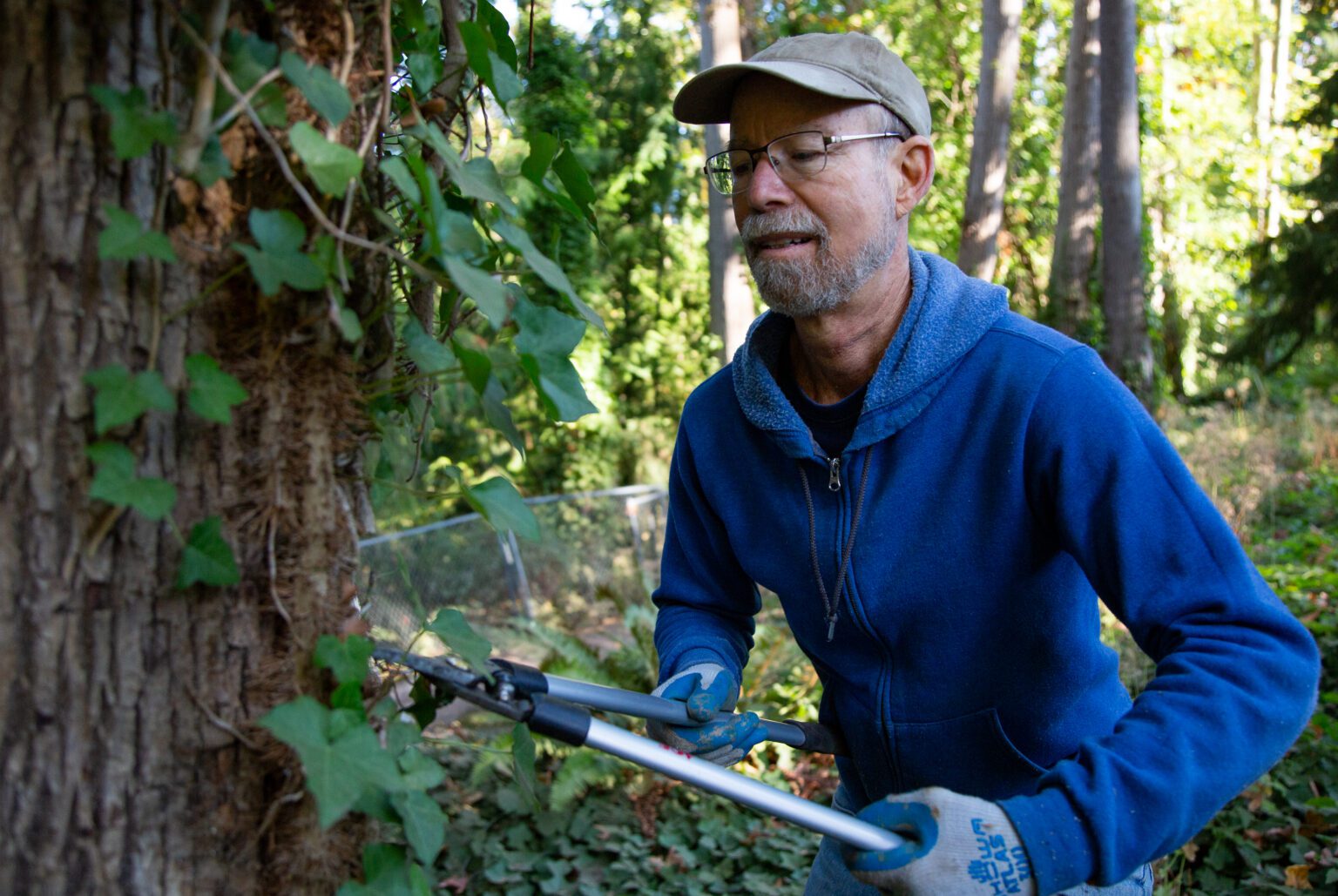The Whatcom Million Trees Project, a Bellingham-based nonprofit targeting reforestation and tree-related resiliency projects in the region, has a new target: invasive English ivy.
The once-popular perennial vining plant has snaked its way into yards, greenways, parks and forests across the county, killing and damaging hundreds of trees in its path.
While the vines latch onto the bark, the plant grows deep roots along trees, competing for water and nutrients. Ivy that reaches a tree canopy can kill a mature tree in a few years, blocking sunlight and weakening limbs.
Once that happens, the covered trees — potential carbon-storage powerhouses – become fragile and prone to breaking or falling, damaging land and homes, and leaving dead snags and decaying wood.
“Most people in our community don’t realize that English ivy kills almost every tree it climbs up on,” Whatcom Million Trees Project executive director Michael Feerer said.
In Bellingham, the Million Trees Project has identified more than 1,000 trees in public spaces like parks and greenways. Even more trees with climbing ivy are beyond city limits and on private property, Feerer said.
“That 1,000 we’ve identified, that’s just within the city of Bellingham and that’s just in public places, parks and greenways – nothing else,” Feerer said last week. “On private properties, there’s many, many more. We just haven’t been able to identify them yet.”
The group identified hundreds of trees covered in ivy in pockets throughout Bellingham, with clusters along the waterfront, near Chuckanut Drive, and in most wooded areas.
That identification project, Feerer said, helped the group plan volunteer removal parties, and since about eight months ago, volunteers have cleared more than 600 trees of the ivy.
“We’ve been chipping away at it,” Feerer said. “We’re making progress, but we’ve got more work to do.”
Chipping away at it, though, is complicated, Feerer said, as local plant nurseries continue to sell the plant — an act Feerer called “remarkable,” considering how much harm it can cause to the local ecosystem.
The group is working with local nurseries, asking them to phase out sales of English ivy in favor of other less invasive plants. As a last-resort option, Feerer said the group could petition the state Department of Agriculture to include English ivy on the nursery prohibited plants list, which includes noxious weeds and “invasive exotic plants.”
The state already considers English ivy a noxious weed, but has yet to place it on a no-sell list. Separate ivy eradication programs are already long under way in some places, such as the Sehome Hill Arboretum in Bellingham, where college students often wield yard tools to battle the pesky vine.
Though the group’s mission is to plant or save more than 1 million trees in the county, Feerer said the group took on invasive species removal to help support a healthy tree canopy during the non-planting season.
“Everyone thinks of us as tree planters, but that’s only one little piece of what we do,” Feerer said. “We also do tree advocacy and a lot of other aspects. Tree planting season really is just from late fall to early spring, so the rest of the year, we have work parties to do the ivy work.”
Healthy trees, Feerer said, are vital for fighting the ongoing climate crisis due to their ability to capture carbon.
“It’s not insignificant, what trees can do for the carbon crisis,” Feerer said. “Trees aren’t the only answer… but a tree can play a role.”




